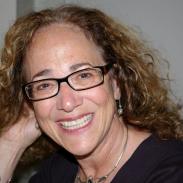I could not be more pleased to present the second in my series of Q&A interviews with story practitioners. This interview is with Jessica Lipnack, whom I first encountered early in this decade through her expertise in virtual teams, another one of my interests. I read her book (co-authored with Jeffrey Stamps), Virtual Teams, and drew on it heavily in teaching my students about virtual teams and guiding them through a virtual-teams project. I was delighted to find that Jessica was a member of Worldwide Story Network and thrilled that we share interests in both virtual teams and storytelling. Learn more about Jessica below. I am presenting the Q&A with Jessica over the next four days.
Bio: Jessica Lipnack is the CEO and co-founder of NetAge, a consultancy that provides advice, education, and ideas on virtual teams, collaboration, and organization structures. She is the co-author (with Jeffrey Stamps) of six non-fiction books on this subject, including Virtual Teams, The Age of the Network, and Networking. She has written articles and op-ed pieces for The New York Times, The Boston Globe, Seattle-Post Intelligencer, The Industry Standard, New Age Journal, Mother Earth News, and more. As a fiction writer, Jessica’s work has appeared in Ars Medica, the Global City Review, Mothering, and The Futurist. Jessica lives in Massachusetts. For more information, visit her website and blog. 
Q&A with Jessica Lipnack:
Q: How did you initially become involved with story/storytelling/narrative? What attracted you to this field? What do you love about it?
A: I’m a writer. Writers tell stories regardless of genre — fiction, nonfiction, poets, business writers. I’ve been writing stories professionally since I took a job as a reporter for my hometown newspaper when I was sixteen. I worked at The Pottstown (PA) Mercury for four summers, eight-hour shifts, five or six days a week, and wrote a lot of stories. When Jeff Stamps and I started writing books for organizations (e.g., Networking, The Age of the Network, Virtual Teams), we included stories in all of them. But not just stories. After exposure to the work of Ned Hermann, we understood that people have differing cognitive preferences, different ways that they learn. Some respond most strongly to vision, some to theory, some to method, some to stories. Hermann’s approach became a design principle for our books — all four cognitive styles had to be included with every chapter. That said, we’ve begun nearly every chapter in every book with a story so as to engage people emotionally.
And, I’ve done some acting. There you learn how to connect your words, your expressions, and your gestures emotionally. Learning to act, at least in the limited way that I have, has helped with presentation skills, critical to good storytelling.
And and I’m a public speaker. By the time you’ve given a hundred speeches, you figure out what connects with audiences and what doesn’t, how to pace yourself, when to be funny, and when to be dead serious.
Q: What people or entities have been most influential to you in your story work and why?
A: Four things here:
- The best writers — or at least the ones I love, big names like Doris Lessing and Geraldine Brooks, both of whom write both fiction and nonfiction, and best-kept secrets, like Roland Merullo, who writes superb novels and superb nonfiction — have had the greatest effect on my storytelling. I’ve learned technique by reading them. The list of all who’ve influenced me could be very long but Annie Lamott’s Bird by Bird is a popular and recent book that’s been helpful; EM Forster’s Aspects of the Novel, a lecture series from long ago, is worthy of study; and Ursula Le Guin’s advice is in a category of its own for its usefulness for anyone truly committed to storytelling.
- I’ve been influenced by business people who tell good stories: an oil company executive who put his company’s one-hundred-year history on huge wall boards that he walked his colleagues around, explaining the challenges facing them; an Army general who has the authority to require senior officers to blog, which he has. These people understand the power of story — and how to reach people deep inside, where truly meaningful change transpires.
- I’ve benefited immensely from being a member of Francis Ford Coppola’s writers’ site, Zoetrope.com. Although the site is for fiction writers — including screenwriters, poets, short story writers, and, inevitably, novelists, its structure encourages writers to critique one another’s work constructively.
- My literary agents and my editors have been terrific and indispensable teachers about language and shaping big stories.
